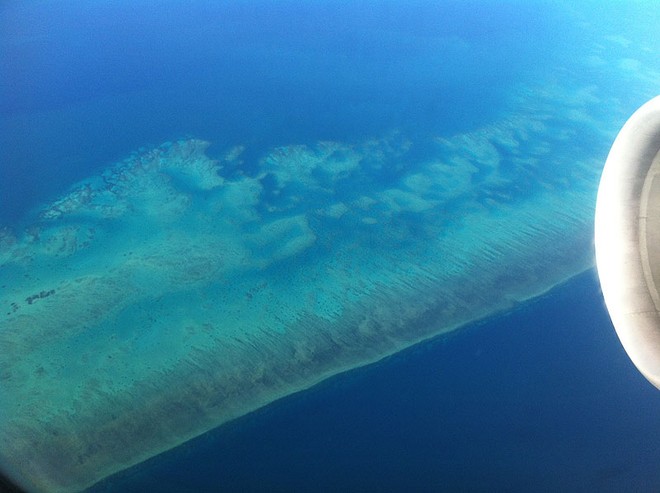Great Barrier Reef managers and industry prepare for summer
by Great Barrier Reef Marine Park Authority on 7 Dec 2016

That wonderful natural wonder of the world known as the Great Barrier Reef. John Curnow
Marine park managers, scientists and experts recently met for the annual pre-summer workshop to assess climate-related risks to the Great Barrier Reef over the coming months. Current predictions by the Bureau of Meteorology and National Oceanic and Atmospheric Administration are for a summer of average sea temperatures across the Great Barrier Reef. “An average summer will be good news for corals recovering from the major coral bleaching event that occurred as a result of an oceanic heat wave last summer,” Great Barrier Reef Marine Park chairman Dr Russell Reichelt said.
“We’ll continue working with the Bureau of Meteorology and the US National Oceanic and Atmospheric Administration over the coming months to continue to monitor conditions. While the global agreements on climate change are being implemented, everyone can play a role in boosting reef health. Following zoning rules, not anchoring on corals, picking up litter, and keeping herbivorous fish on the Reef all contribute to the health of the system. All actions — big or small — are vital to the Reef’s future.”
Convened each year by GBRMPA, the pre-summer workshop enables participants to share information and prepare for any weather-related impacts under the agency’s Reef Health Incident Response system. The pre-summer check-up identifies what reef monitoring programs and activities should be undertaken over summer and the appropriate locations. This year’s workshop follows the 2016 mass bleaching — the full extent of which will be evident in early 2017 after the data from recently completed surveys is analysed.
GBRMPA is working with governments, industry and Traditional Owners to protect the Reef and its health — actions are Reef-wide, regional and local:
• Reducing illegal fishing in no-take marine national park zones through dedicated compliance efforts by GBRMPA and the Queensland Parks and Wildlife Service — corals in no-take areas are more resistant to disease and recover faster after disturbance and no-take areas provide refuge for fish and other species.
• Using assessments and permits to ensure activities in the Marine Park are ecologically sustainable and industries are operating to a high standard.
• Contributing to the Australian and Queensland governments’ Reef 2050 Plan, including developing an integrated monitoring and reporting program to track the plan’s progress.
• Protecting adult coral colonies on target reefs by culling coral-eating crown-of-thorns starfish — a major Commonwealth funded program delivered by GBRMPA, Reef and Rainforest Research Centre and the Association of Marine Park Tourism Operators.
• Supporting voluntary no-take by the marine aquarium industry in areas most significantly affected by coral bleaching.
• Encouraging fishers to introduce a voluntary moratorium on taking key herbivorous fish in the far north — these fish, like wrasses or parrot fish, keep seaweeds under control while coral larvae settle and regrow.
• Investigating the potential for small-scale coral restoration.
Throughout summer the Great Barrier Reef Marine Park Authority will post updates on the Reef’s current conditions on its website
Members of the public can report incidents of coral bleaching, disease, predation or damage through the Eye on the Reef program: eye-on-the-reef
If you want to link to this article then please use this URL: www.sail-world.com/150240

